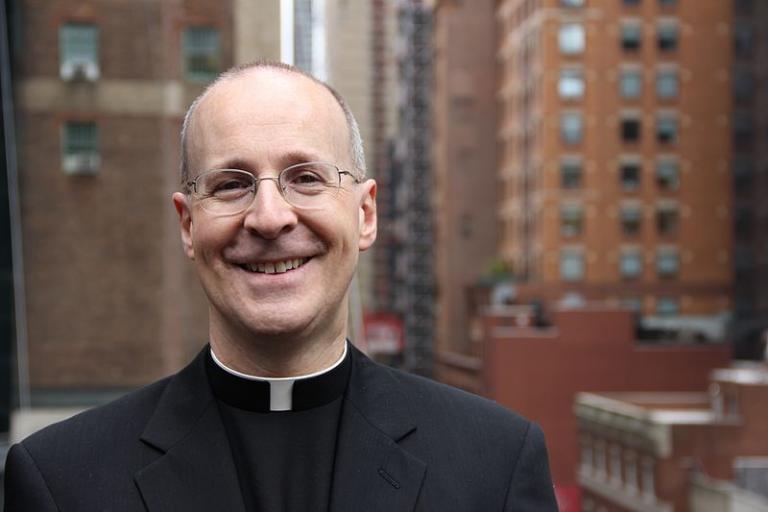
Fr. James Martin, as many readers will know, is a Jesuit priest best known for promoting acceptance of, as he would say it, the LGBT community. He’s always been coy about what he believes specifically, and whenever Facebook-friends would share his posts on his Facebook page, I noticed that many of them tended to be links to controversial statements in which Martin would comment cryptically, never quite saying anything that would clearly contradict Catholic moral teaching, never quite affirming it, either.
But the article he has in America today bothered me enough to merit writing about. It’s called “The witch hunt for gay priests” and is the same sort of demand that Catholic priests with a homosexual orientation be able to speak openly about their present situation, past experiences, and the like, so as to combat erroneous beliefs that all such men are child abusers, that is his ongoing theme.
But he’s very careful with his language. He says:
What I mean by “gay priests” is ordained priests with a homosexual orientation who are living their promises of celibacy (and in religious orders, their vows of chastity).
and later repeats this distinction:
the example of the many hardworking, healthy and celibate gay priests (and chaste members of religious orders)
and again:
More to the point, I know hundreds of gay priests, and I can say with honesty that all of them strive to keep their promises of celibacy and vows of chastity, none of them conspire with other gay priests, and yet many of them are demoralized by this increasingly hate-fueled witch hunt.
But this wordplay is a bit too clever.
What is celibacy? Here’s the definition at the National Catholic Register:
Celibacy is the state of not being married.
People associate it with the priesthood because, in the Latin rite of the Church, the norm is for priests to be unmarried—to be celibate.
However, properly speaking, anyone who is unmarried can also be said to be celibate.
It comes from the Latin word caelibatus, which simply means “the state of being unmarried.”
And chastity? That’s the virtue of sexual purity. A single person lives out the virtue of chastity by not having sexual intercourse or other inappropriate sexual activity. A married person lives out the virtue of chastity by such actions as avoiding contraception.
And, as the Register points out, “diocesan clergy are obliged to observe celibacy and continence [refraining from sexual activity], but it is not the product of a vow the way it is for those in the consecrated life.”
So why is Martin making this distinction between celibacy and chastity? Perhaps he’s simply striving for precision. But it also means that he is carefully avoiding making the statement that his gay priest friends are avoiding sex. What does he think about the claims that there are significant numbers of gay priests (and gay seminarians) who are having sex because they reject the church’s moral teaching? He doesn’t tell us. In fact, he is writing in a manner that enables his readers to assume that he is speaking of chaste priests, if they are not aware of the distinction between celibacy and chastity.
This is devious. This suggests that priests — or by extension any of the rest of us — are not bound to Catholic teaching on sexual morality unless we specifically make a vow or promise.
And maybe these claims are all exaggerations. But if Martin is carefully parsing his words to ensure that he avoids telling us, who can know?
Image: https://commons.wikimedia.org/wiki/File:Jim_Martin2.JPG; By Kerry Weber (photosub 2015040610018739) [CC BY-SA 4.0 (https://creativecommons.org/licenses/by-sa/4.0)], via Wikimedia Commons












